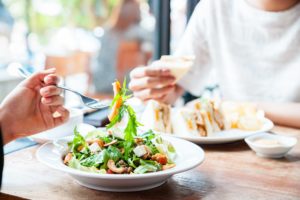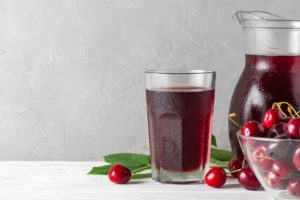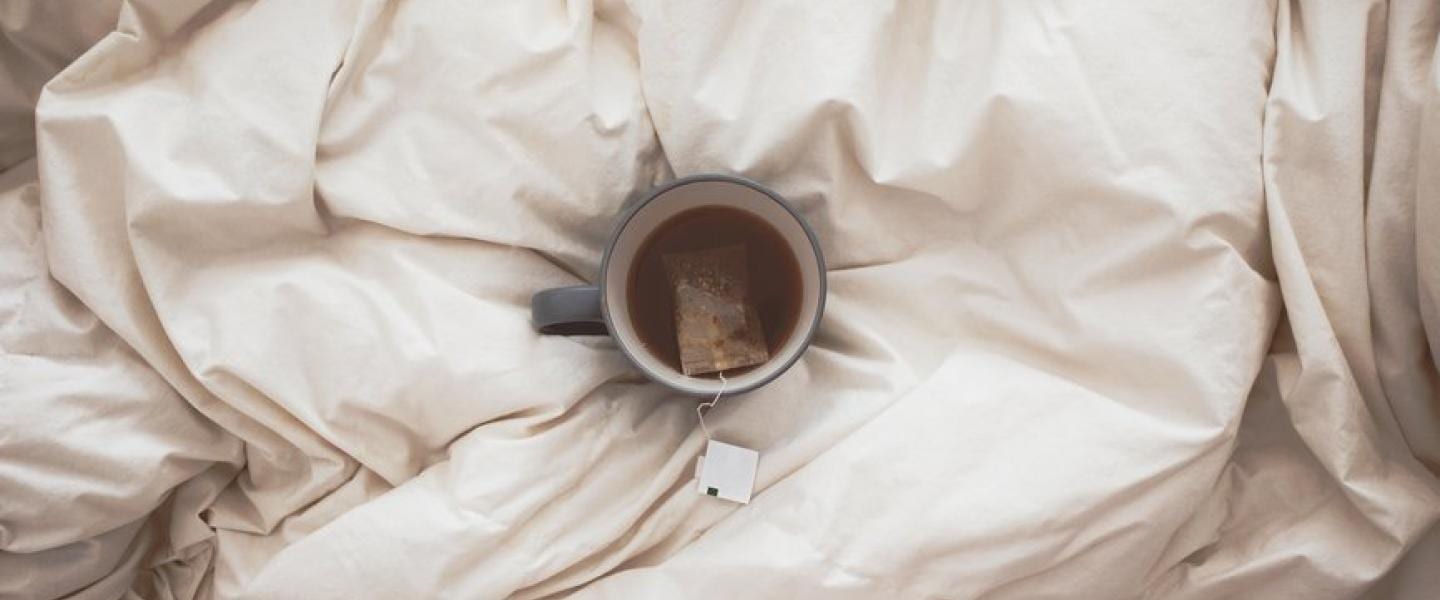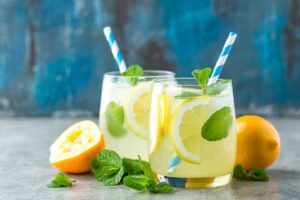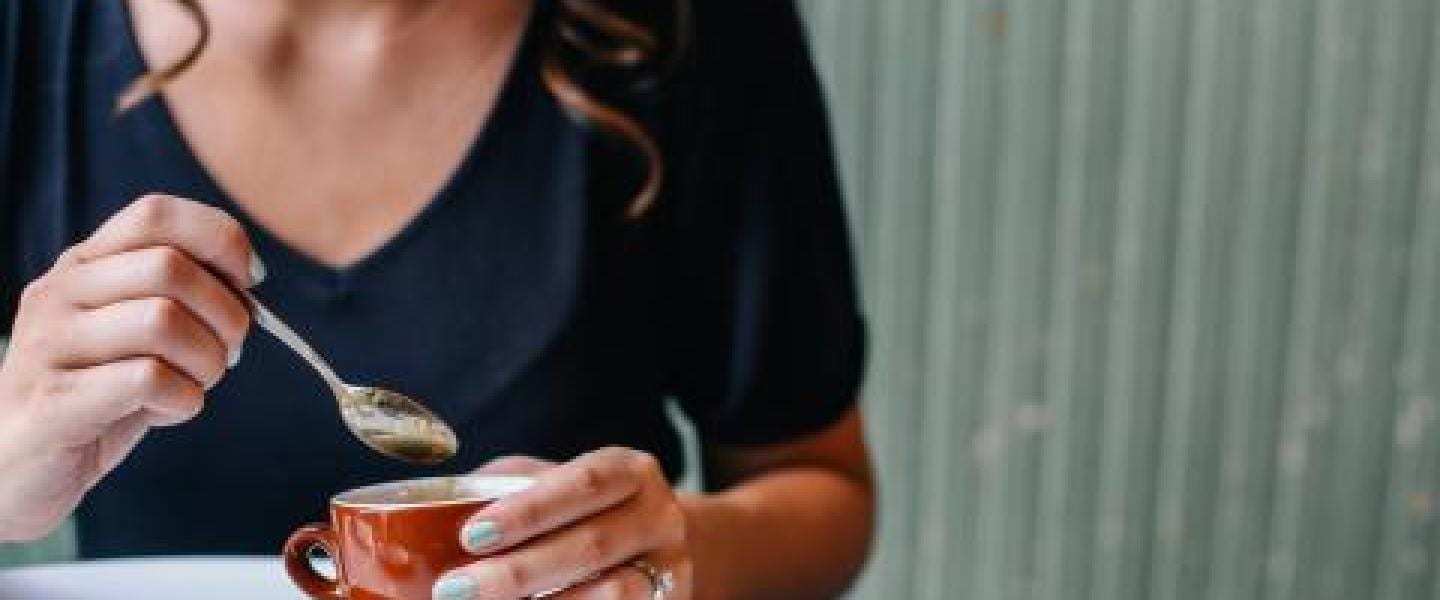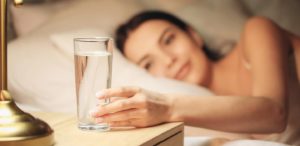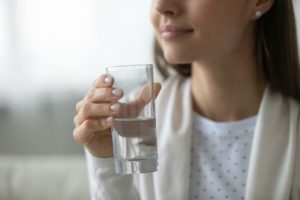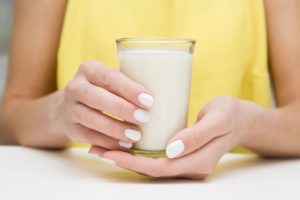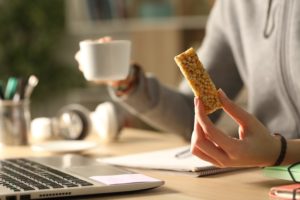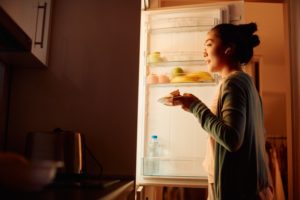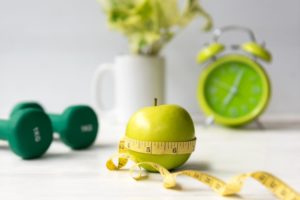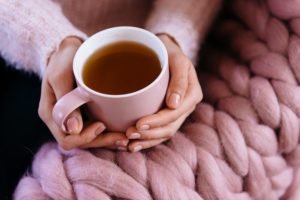When you buy through our links, we may earn a commission. Products or services may be offered by an affiliated entity. Learn more.
How Does Soda Affect Sleep?
- Consuming soda too close to bedtime may lead to disrupted sleep patterns.
- Artificial carbonation, caffeine, and sugar can interfere with your ability to fall asleep and stay asleep.
- In the evening, substitute soda with naturally flavored water to prevent sleep issues.
Whether you know them as sodas, pop, coke, or by another name, carbonated soft drinks are widely consumed throughout the U.S. According to recent data, 63% of youths and 49% of adults consume at least one of these beverages on any given day.
Despite their popularity, soft drinks have been linked to multiple adverse effects, including weight gain. Furthermore, soft drinks can have an indirect effect on sleep quality because these beverages have been linked to certain patterns — such as less exercise during the day and more screen time at night — that potentially interfere with natural sleep cycles.
Looking to improve your sleep? Try upgrading your mattress.
Why Drinking Soda Can Keep You Up At Night
Soft drinks are considered sugar-sweetened beverages (SSBs), often sweetened with brown sugar, corn syrup, dextrose, fructose, and/or glucose. Studies show soft drinks and other SSBs may decrease sleep duration for both adults and children. Aside from insufficient sleep, overconsumption of energy-dense food and drink can lead to a myriad of health problems, including weight gain and obesity, type 2 diabetes, tooth decay, and diseases of the heart, kidneys, and liver.
Caffeine
Caffeinated soft drinks, along with coffee and tea, comprise 96% of the country’s beverage caffeine consumption, and roughly 85% of the U.S. population drinks at least one caffeinated beverage every day.
Caffeine increases alertness, so consuming a caffeinated beverage close to bedtime can make falling and staying asleep more difficult. One study found that consumption of caffeinated SSBs was 33% higher for adults who sleep five or fewer hours per night, and 15% higher for people who sleep six or fewer hours per night, compared to those who get at least 7 hours of sleep per night.
Moderate amounts of caffeine during the day are not necessarily unhealthy. Shift workers who must be alert at night can also get a much-needed boost from caffeinated beverages. However, the effects of caffeine take several hours to wear off and you should avoid these drinks leading up to your usual bedtime.
Weight Gain
The relationship between SSB intake and obesity is well-documented. Studies suggest these beverages can lead to weight gain due in part to their high sugar content. A 12-ounce soft drink serving may contain anywhere from 10 to 13.5 teaspoons of sugar, so these beverages can have a significant impact on your blood glucose level.
Obesity can increase your risk for certain sleep disorders. Excess body weight is considered the major predisposing factor for obstructive sleep apnea, a condition that causes people to wake up choking or gasping for air throughout the night. Additionally, weight gain can make you more likely to snore, and this may disrupt sleep for you and your partner.
Another condition, obesity hypoventilation syndrome (OHS), causes shallow breathing during sleep and can lead to feelings of excessive daytime sleepiness. As its name suggests, OHS occurs in people with a body mass index of at least 30 kilograms per square meter, which falls within the 95th percentile for adults.
Heartburn
Heartburn occurs when the lower esophageal sphincter – a band of muscle near the bottom of the esophagus – does not constrict enough after you consume foods or drinks. This can cause stomach acid to re-enter the esophagus, which is known as reflux. Many people experience occasional heartburn, but frequent symptoms may indicate a more serious condition known as gastroesophageal reflux disease (GERD).
The discomfort of heartburn can easily disrupt sleep, so people who frequently experience heartburn may want to avoid foods and drinks that trigger these symptoms. One study found that consuming SSBs and other carbonated beverages increases your risk of heartburn symptoms that disrupt sleep by 24%.
Nocturia
Nocturia refers to the need to urinate in the middle of the night, which in turn can disrupt your sleep. Roughly one-third of adults experience nocturia. While underlying medical conditions and other factors such as medication can lead to nocturia, drinking soda before going to sleep – particularly caffeinated SSBs – may also cause nighttime trips to the bathroom.
It’s also important to note that the relationship between sleep and SSBs may be bidirectional. Some studies have shown sleep loss can lead to biological and behavioral changes that influence the food and drinks we consume. Lack of sleep can also affect hormones that regulate appetite such as ghrelin and leptin, causing you to feel hungrier and consume more during the day.
Soda, Seltzer, & Sparkling Water: What’s the Difference?
The bubbles of carbonated drinks are often thought to help soothe an upset stomach. However, the gas and acidity may end up making things worse. If you’re the type to drink soda in the evening or enjoy a nightcap before bed, consider different drink options that provide the same fizzy feeling.
Although soda water, or club soda, lack calories, it has added sodium salts. Similarly, seltzer water is a popular, artificially carbonated drink. However, the heavy carbonation of both can cause bloating and reflux, especially when lying down for sleep.
The carbonation of sparkling water can come from naturally pressurized carbon dioxide. Sparkling mineral water can be a good source of potassium, sodium, and magnesium. Sparkling water may be a good soda alternative – especially when flavored or infused with fruits and herbs.
How Can Soda Drinkers Improve Their Sleep?
Since SSBs carry little nutritional value, and because they can disrupt sleep and lead to other medical complications, studies suggest reducing SSB intake carries health benefits. However, many people crave sugary foods and drinks and struggle with lowering the amount of sugar they consume.
If you’re trying to cut down on soft drinks and improve your sleep, the following tips may be helpful:
- Substitute soft drinks with cold water. This accomplishes the twofold task of reducing the amount of sugar you consume and improving your overall hydration.
- If you need something more flavorful than water, opt for a healthy alternative such as 100% fruit juice. You can also flavor your water with natural ingredients such as berries or cucumbers, rather than sweetening with sugar.
- If you need a caffeine boost in the morning, forgo sodas and switch to unsweetened coffee or tea. Avoid all caffeinated beverages in the afternoon and evening. This will help you fall asleep at your normal bedtime.
- Check nutritional labels on all drinks you consume to ensure they don’t contain high amounts of sugar or caffeine.

Still have questions? Ask our community!
Join our Sleep Care Community — a trusted hub of sleep health professionals, product specialists, and people just like you. Whether you need expert sleep advice for your insomnia or you’re searching for the perfect mattress, we’ve got you covered. Get personalized guidance from the experts who know sleep best.
References
10 Sources
-
Division of Nutrition, Physical Activity, and Obesity, National Center for Chronic Disease Prevention and Health Promotion. (2020, November 18). Get the Facts: Sugar-Sweetened Beverages and Consumption. Centers for Disease Control and Prevention.
https://www.cdc.gov/nutrition/data-statistics/sugar-sweetened-beverages-intake.html -
Chaput, J., Tremblay, M., Katzmarzyk, P., Fogelholm, M., Hu, G., Maher, C., et al. (2018). Sleep patterns and sugar-sweetened beverage consumption among children from around the world. Public Health Nutrition, 21(13), 2385-2393.
https://www.cambridge.org/core/product/identifier/S1368980018000976/type/journal_article -
Mitchell, D. C., Knight, C. A., Hockenberry, J., Teplansky, R., & Hartman, T. J. (2014). Beverage caffeine intakes in the U.S. Food and Chemical Toxicology, 63, 136–142.
https://linkinghub.elsevier.com/retrieve/pii/S0278691513007175 -
Malik, V. S., Schulze, M. B., & Hu, F. B. (2006). Intake of sugar-sweetened beverages and weight gain: a systematic review. The American journal of clinical nutrition, 84(2), 274–288.
https://pubmed.ncbi.nlm.nih.gov/16895873/ -
Division of Nutrition, Physical Activity, and Obesity, National Center for Chronic Disease Prevention and Health Promotion. (2020, September 25). Rethink your drink. Centers for Disease Control and Prevention.
https://www.cdc.gov/healthy-weight-growth/rethink-your-drink/index.html -
American Academy of Sleep Medicine. (2014). The International Classification of Sleep Disorders – Third Edition (ICSD-3). Darien, IL.
https://aasm.org/ -
MedlinePlus [Internet]. Bethesda (MD): National Library of Medicine (US); Snoring;
https://medlineplus.gov/snoring.html -
A.D.A.M. Medical Encyclopedia. (2019, January 19). Heartburn. MedlinePlus.
https://medlineplus.gov/ency/article/003114.htm -
Urology Care Foundation. (n.d.). Nocturia.
https://www.urologyhealth.org/urology-a-z/n/nocturia -
Mekonnen, T. A., Odden, M. C., Coxson, P. G., Guzman, D., Lightwood, J., Wang, Y. C., & Bibbins-Domingo, K. (2013). Health benefits of reducing sugar-sweetened beverage intake in high risk populations of California: results from the cardiovascular disease (CVD) policy model. PloS one, 8(12), e81723.
https://pubmed.ncbi.nlm.nih.gov/24349119/



